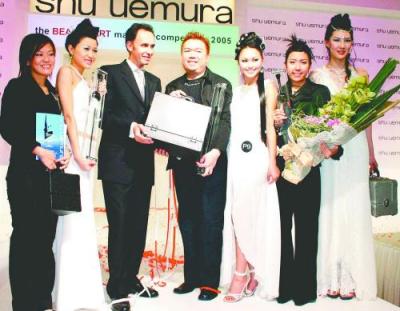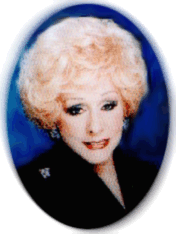The name Eng Kah may not ring a bell among consumers of personal care products, but this Main Board company seems to be thriving in the wings as contract manufacturer to globally renowned brands such as
Avon and
Johnson & Johnson.
The business was founded by managing director Ewe Eng Kah, a chemist who started in the 1970s making his own shampoo in Penang. The company now manufactures perfumes, skincare, cosmetics, toiletries and household products
When Ewe Eng Kah was offered a job by a reputable steel mill to work in Japan, he turned it down, preferring to stay put in his homeland after years of study abroad. And he has no regrets because soon after that, Ewe ventured into the shampoo business and found his true calling.
He founded
Eng Kah Corp Bhd, a contract manufacturer of perfumery, cosmetic, skincare, toiletry and household products, which is shampoo business and found his true calling. Today Eng Kah is the only perfumery, consmetic and skincare
manufacturer listed on main board of Bursa Malaysia.
The other public listed company on the main board:
Esthetics International Group Bhd is in professional skincare and spa services and distribution. Not in Manufacturing. Another manufacturer
Hi-City BioScience Group Bhd is listed on Second Board. Thus, Eng Kah is the only cosmetic manufacturing company listed on main board of Bursa Malaysia.
“Back in the late 1960s, shampoo [in liquid form] had just come into the market and I thought it would be a good opportunity to embark on the growing trend,” says Ewe in an exclusive interview with The Edge.
With his qualification in chemistry, Ewe came up with his own formulation of various variants of shampoo in his own backyard. Having total faith in his innovation, Ewe then marketed his shampoo to salons. It became a success and soon his products could be found on the shelves of retail shops all over Penang.Incorporated as Eng Kah Enterprise Sdn Bhd in 1985, Eng Kah Corp is now the holding company for Eng Kah Enterprise, Eng Kah Enterprise (KL) Sdn Bhd and Eng Kah (HK) Ltd, which is dormant.
Ewe recalls the turning point for the company. “In the mid-Seventies, I was approached by an international brand name which showed strong interest in the company’s products.
“The multinational corporation [MNC] was keen for us to become its supplier, but we were very limited in resources,” recalls Ewe. “At that time, the company was still a cottage industry, operating from a few rented bungalows.”
The event left a deep impression on Ewe. He was then convinced that with the right infrastructure, the company had the potential to be a good contract manufacturer for both local and international brands.
Eng Kah Corp now manufactures approximately 1,000 items for more than 50 companies of various natures, namely, trading companies, direct selling companies, MNCs and even public-listed companies. Among its major customers are
Cosway (M) Sdn Bhd and Manufacturing Services Sdn Bhd, a subsidiary of
Unza Holdings Bhd.
According to market research carried out by Taylor Nelson Sofres Malaysia, Eng Kah Corp is the only large contract manufacturer with the complete range of perfumery, colour cosmetics and household products in Malaysia. “Eng Kah took off with [the production of] shampoo and hair dye, then we ventured into toiletries in 1986,” says Ewe. “Upon shifting into the existing plant in Bayan Lepas, the company started to manufacture skin care products in 1992.”
Ewe wanted to provide a full range of products so that “the customers would not have to look elsewhere” and in 1997, the group acquired a factory building in Shah Alam for the manufacturing of household products.
Of the RM17.44 million to be raised from the placement and public issue, RM2.5 mil lion will be utilised for the recent purchase of machinery as part of the group’s expansion plans. Both plants in Penang and Shah Alam are currently operating at 90 per cent capacity.
In view of growing demand, the company acquired two plots of land in 2000 measuring a total of 5.8 acres along with a factory building in Nilai for future expansion.
With its subsidiary Eng Kah Enterprise having been awarded the Good Manufacturing Practice (GMP) certificate in 1999, one of the company’s new focuses will be to develop medicated, pharmaceutical and herbal-based products.
“We want to differentiate our products by adding value to them,” says Ewe, who is involved in the research and development of the group. “These types of items will be able provide a stronger commitment to deliver results desired by consumers, such as anti-wrinkle cream and anti-dandruff shampoo, hence creating product loyalty.”
“Eng Kah adds value to its customers by providing total concept solutions in terms of packaging designs including sourcing of raw packaging materials, creating new formulation for its customers and arranging for direct delivery transportation,” states the local stockbroking house in its research report.
Chong Sui San, chief investment officer at Allianz Unit Trusts, says that Eng Kah’s experience and standards of research and development (R&D) give it a good sense of clients’ needs, which enables it to comfortably explore new ideas for products.
“Eng Kah’s know-how is its strength, and this is evidenced by its ability to secure clients like Avon and Johnson & Johnson”, says Wong Ming Tek, an analyst with DBS Vickers Securities.
A good track record and reputation follow on from know-how, and Eng Kah seems to have maintained theirs, analysts reckon. Chong says that hygiene and quality control have to be top-class in the beauty business, as a single customer complaint could affect the entire reputation of a manufacturer.
According to a DBS Vickers Securities research report dated Oct 10 last year, Eng Kah has greater control of the manufacturing process as 95 per cent of formulations are created in-house. These formulas provide the company with a high degree of bargaining power with its clients, because whilst the ingredients are made known to clients, the company retains and owns the “secrets” as to how they are mixed. It is not surprising then that the company’s top three customers by revenue contribution in the financial year ended 2001 (FY01) have been with the company for 14, four and six years, respectively.
The know-how factor also lends itself nicely as a barrier to entry. Chong says that there may be copycat companies in the industry watching Eng Kah with a view to follow in its footsteps. She notes, however, that the industry is very segmented and it would be difficult to undertake a comparative analysis, especially among “backyard chemists”.
She believes that Eng Kah can distinguish itself as international names are behind it. Eng Kah also provides value-added services to its customers in the form of transportation and by designing the packaging for its products. “Compatibility between the product and its packaging is very important, both in terms of design and of how the materials react to each other,” Ewe says.
Another analyst’s view is that there are no major barriers to the cosmetics and toiletries industry, and branding and marketing are what set products apart. Ewe says that entry into the industry is not just a question of having adequate capital. “The strength lies in R&D and it is difficult for a newcomer to gain experience,” he explains.
However, the management is not resting on its laurels. The company has set up another plant in Nilai, Negri Sembilan, with its listing proceeds to add production capacity to its existing Penang and Shah Alam plants.
DBS Vickers’ Wong sees this as a prudent move on the part of the management. “Bulkier, low-margin products like household and toiletry items will be moved to Nilai from land-expensive Penang. Transport costs will also be reduced as Nilai is a more central location,” he says.
Chong says that it makes sense for the higher-margin products to remain in Penang as Ewe is “very hands-on and involved in the business”.
Capacity in Penang for the higher-margin products like cosmetics and skincare will be expanded by 25 to 30 per cent in the next two years.
Eng Kah should also be able to fend off competition from other manufacturers in the region with its embedded skills, experience and long-term relationships.
The company has also bought a piece of land next to the new Nilai plant “to be used for a new idea” and should finalise an agreement with a new multinational client by the end of the month.
AmResearch said Eng Kah's production capacity would grow when its third plant in Nilai was commissioned in the fourth quarter this year.
Manufacturing of household products would be shifted to the Nilai plant to free up capacity of its present two plants to manufacture perfumery, cosmetic, skin care and toiletry products.
The Nilai plant is two times larger than its existing plant. Its two plants in Bayan Lepas and Shah Alam were operating at 90 per cent capacity. This has caused backlog orders over the past three months.
Eng Kah recently acquired a factory building in Bayan Lepas previously owned by Widetech (M) Bhd for RM5.63 million cash, located next to Eng Kah's existing plant. The Widetech plant, together with a new plant in Nilai, which commenced operations last month, will increase its production capacity. Eng Kah is already operating at full capacity.
analysts are bullish on Eng Kah is its innovation and management focus. Analysts note that Eng Kah is among a few players in the industry that not only contract manufactures skin care and household products but also generates new product ideas for its clients. These new ideas include packaging methods as well as new chemical formula for products.
Excerpt from The Edge.
Eng Kah rides on Cosway potential
http://english1.cari.com.my/forum.php?mod=viewthread&tid=767928&fromuid=1950303
Tag:
Cosmetic :
Beauty :
Malaysia:
Health & wellness Biotechnology













